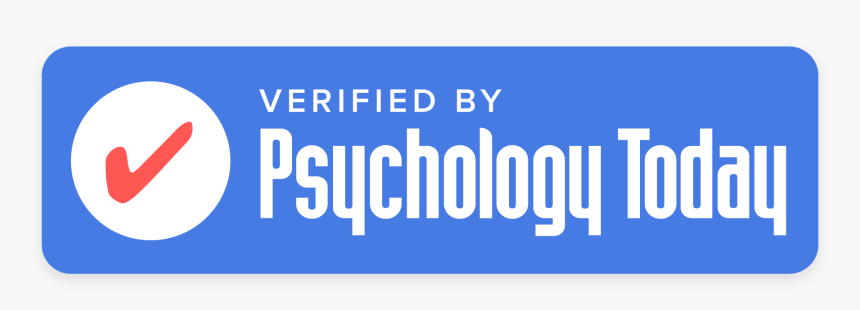|
Online therapy has grown to become a crucial component of mental health care as it offers an accessible, flexible and effective treatment for various psychological issues. These include obsessive-compulsive disorder (OCD), anxiety and many other difficulties. This article will investigate the world of online therapy and the role of cognitive-behavioural therapy (CBT) whilst considering the significance of online and telephone counselling in addressing mental health difficulties. The Rise of Online TherapyThe internet has implemented new ways of doing things for many aspects of our lives. Mental health care is no exception. Online therapy, which is also known as teletherapy, makes use of digital platforms in order to connect patients with therapists through video calls, chat and email. These mediums of communication for conducting therapy have gained substantial traction, particularly during the COVID-19 pandemic. The perceived necessity of social distancing and limited in-person interactions greatly decreased the demand for in-person therapy. The selling point for conducting online therapy lies in its accessibility. It can be beneficial for individuals who live in remote areas, have mobility issues, or face time constraints. Most importantly it can help anyone as it is not less effective when compared to face to face therapy. Conferencing software which facilitate online therapy is commonly encrypted which allows for greater confidentiality than in-person therapy. Managing your OCD with Online TherapyObsessive-compulsive disorder (OCD) is a chronic condition that entails the experiencing of recurring thoughts and urges (obsessions) and associated behaviours (compulsions) that the individual feels compelled to repeat. In-person therapy has been the main medium through which OCD is treated. Online therapy is proving to be just as effective. The most effective treatment for OCD is cognitive-behavioural therapy (CBT). A must is the inclusion of a treatment approach called exposure and response prevention (ERP). ERP entails the gradual exposure towards feared objects or ideas while preventing compulsive behaviours that typically follow. Many online platforms enable therapists to guide patients through ERP exercises whilst providing real-time support and feedback. Combating Anxiety with TeletherapySome of the most common mental health conditions are anxiety disorders. These affect millions worldwide. Anxiety disorders can manifest as generalized anxiety disorder (GAD), social anxiety, panic disorder and many more ways that don’t always fit neatly within a diagnostic category. Like OCD, anxiety disorders can be treated with the use of CBT. Making use of online therapy offers several advantages for anxiety treatment. The convenience of accessing therapy from home can reduce the anxiety associated with attending in-person sessions. Online therapy can also incorporate various therapeutic techniques that are associated with CBT. These include mindfulness and relaxation exercises, which patients can then practice at home. The Role of Cognitive-Behavioral Therapy (CBT)Cognitive-behavioural therapy (CBT) represents a set of structured, time-limited therapies (not always) that focus on addressing thought patterns, behaviours and other sensations. CBT is highly effective for a range of mental health issues which include depression, OCD and many anxiety disorders. Online CBT sessions are structured the same as in-person ones. Therapists make use of video or telephone calls to engage with patients, whilst acting as a catalyst to help clients make helpful decisions and changes in their lives. Remote and in-person therapy allows for flexibility which enables patients to schedule sessions at most suitable times. Online and Telephone CounsellingIn addition to video-based therapy, online counselling can also be done through text-based therapy and telephone counselling. Each way of doing it is equally effective yet applies to varying preferences and needs.
Effectiveness and ConsiderationsStudies have indicated the effectiveness of online therapy. Research published in the Journal of Anxiety Disorders found that online CBT was as effective as face-to-face therapy for treating anxiety and depression. Further more, a major study in the Journal of Medical Internet Research found that high patient satisfaction with teletherapy was reported. Subjects noted its convenience and ease of access. Nevertheless it should be stated that online therapy may not be suitable for everyone. Severe mental health conditions may require intensive treatment by psychologists, social workers and psychiatrists. Some patients of course require hospitalisation and are thus better managed with in-person care. Individuals with limited internet access or those uncomfortable with digital communication might find online therapy challenging. Privacy and ConfidentialityConfidentiality has to represent a paramount element in a therapeutic setting. Many online therapy platforms adhere to enhanced encryption measures in order to protect patient information. Encrypted communication channels in order to fall in compliance with regulations like HIPAA (Health Insurance Portability and Accountability Act) helps ensure that a patient’s data remains confidential. ConclusionOnline therapy has greatly aided the therapeutic treatment sphere. It makes treatment more accessible and adaptable towards individual considerations. For those grappling with OCD, anxiety, and other mental health challenges, online and telephone counselling can be very beneficial. The scope of online therapy is likely to expand which offers hope to those in need.
Whether through video calls, text-based chat or telephone sessions, how therapy is done remains the same: aiding individuals in exploring themselves, whilst developing coping strategies. This allows them to work towards a healthier life.
0 Comments
Leave a Reply. |
AuthorI am a full time Cognitive Behavioural Psychotherapist (CBT) in Richmond, London. Archives
May 2024
Categories
All
|
|
Approved Therapist
|




 RSS Feed
RSS Feed


